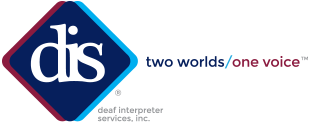By Marilyn Weber
Owning a business is a difficult task in itself, but imagine having the additional challenge of being deaf. Today, there are more than 1,000 deaf-owned businesses thriving in this noisy world. With technological advancements, and less restrictions on the deaf than ever before, it’s said that the number of deaf-owned businesses have almost doubled since 2009.
Recent opportunities through technology in the last decade have enabled deaf entrepreneurs of all kinds (chefs, mechanics, accountants and more) to communicate with the hearing community in a number of ways. Video Relay Service (VRS) is used to make phone calls, using sign language to speak through a third-party interpreter via video. Video Remote Interpreting (VRI) is a video communication service that is often used to bridge conversational gaps between two people in the same location. VRI is often preferred because no additional equipment is needed other than a web camera with audio and a high-speed internet connection.
Just as hearing individuals have deaf customers, deaf business owners will have hearing customers as well. Having a VRS and/or a VRI system already in place will exponentially downsize the number of challenges deaf entrepreneurs face as well as ensure an easy flowing conversation between all parties.
Additionally, there are multiple resources such as business ratings, directories, funding, networking and organizations all available for deaf-owned businesses. First by training the deaf individual to become successful business owners, and secondly by teaching other businesses how to provide adequate services for deaf or hard-of-hearing customers. Additionally, there are a wealth of services that assist deaf business owners, including sign language interpreters, communication access real time (CART), computer assisted note-taking (CAN), voice carry over (VCO) phones, deaf support specialists, job coaches and more.
Personality types can also be a hurdle that deaf business owners must face. On a high-level, there are two different personality types – introverted and extroverted. It can be especially difficult if a deaf business owner is also introverted: Constantly interacting with clients is tough in itself, and it can be especially hard to prospect for new business. A good strategy to counter this challenge is to attend and embrace daily interactions at the many networking events offered at a state or national level.Although this may be tiring, networking will help build business relationships and serve as adequate practice for when communicating with clients.
As more deaf-owned businesses arise,hopefully more young members of the Deaf Community will become inspired to begin their own journey of beginning a business. With resources, deaf business role models and assistive technology at a high, it is a great time for aspiring deaf entrepreneurs to begin building their dream.

